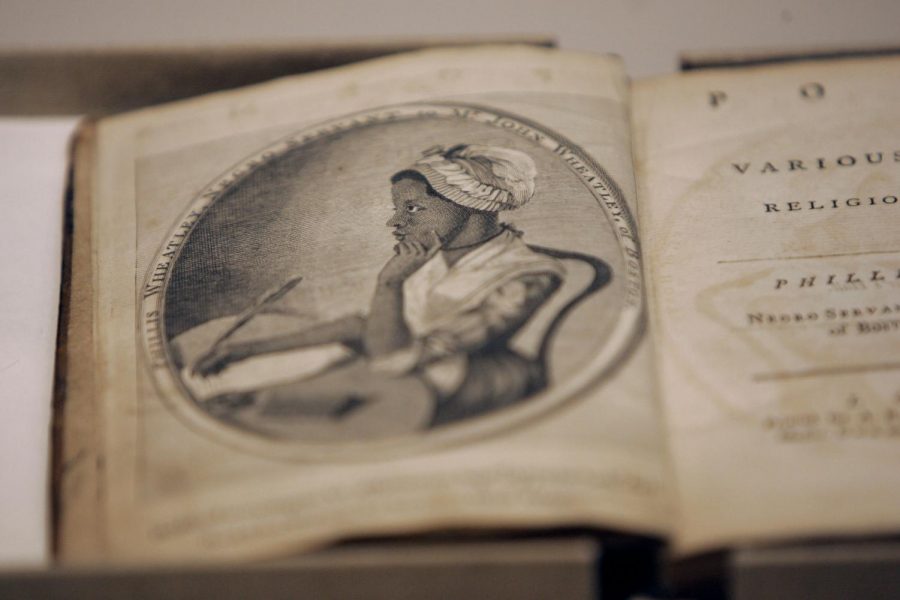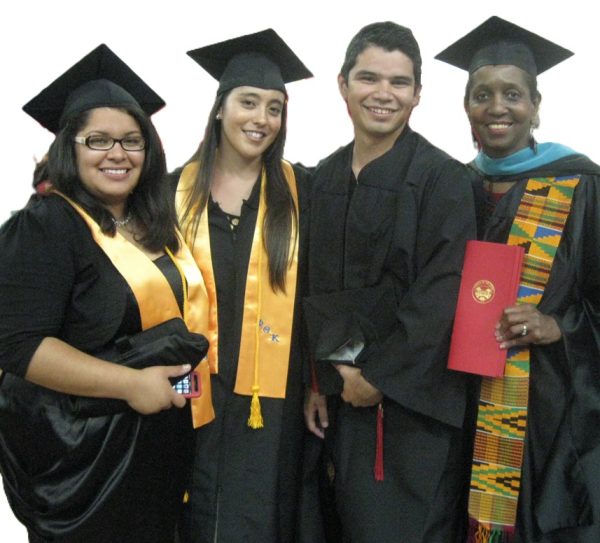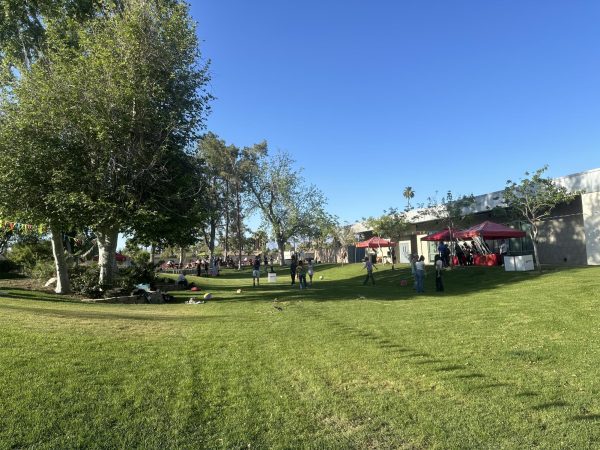Why Black History Month is still relevant
A copy of a book by Phillis Wheatley, the first book written by an African American.
March 9, 2020
February holds important cultural and historical context for black Americans in the United States. First celebrated in 1970, and made official in 1976, February is Black History Month.
Black History Month was created to highlight the achievements of the African- Americans throughout history, which have been often forgotten or hidden from the public.
Many inventions and advancements we have today would not have been possible without the ideas of Black Americans.
Phillis Wheatley is a name that is not widely known, and her story is rarely taught in schools. Wheatley was the first African-American to publish a book of poetry.
In 1761 Wheatley was kidnapped from Africa and sold into slavery. She was then purchased by the Wheatley family to be the personal servant of Mrs. Wheatley in Boston.
Wheatley was allowed to be educated and learned to read and write in English, Latin and Greek and in 1773 she published her first book titled, Poems on Various Subjects, Religious and Moral. Her poem, “On Being Brought from Africa to America,” describes the racism she experienced in America despite the progress she had made.
Although she managed to publish one book of poetry, she was unable to find a publisher that would support a second one.
Today black voices and stories are still struggling to be heard.
A recent event with a popular music app is a great example of a lack of recognition the African-American community has suffered here in the United States.
The popular TikTok dance “Renegade” became viral online after 14-year-old Jalaiah Harmon first posted herself doing an original dance.
The dance was created by Harmon, but once other TikTok users and celebrities started posting their own videos with her moves, Harmon was not given credit for the popular dance.
While other users gained fame and attention from media sites by doing Harmon’s dance, she went unrecognized.
Even a group of mainly Caucasian TikTok dancers were invited to perform “Renegade” during halftime at one of the NBA All-Star games. This event caused a backlash on social media and several people started posting the original video of Harmon to get her the recognition she deserved.
Eventually, Harmon was invited to the NBA All-Star game to perform her dance on Feb. 16. Harmon was able to take credit for her work, as people supported her and recognized her talent.
Here in the valley, the month is celebrated through different events hosted by the Palm Springs Black History Month Committee.
On Feb. 29 the 33rd annual Black History Month Parade and Town Fair took place in Palm Springs.
Black History Month has helped make progress toward recognizing Black Americans. I believe that it is still important because the United States needs to acknowledge the contributions the community has made for the country and the world.
The situation involving Harmon shows how the black community can still suffer from having their ideas stolen or be attributed as creators of global trends.
Just like how Phillis Wheatley and Jalaiah Harmon’s talent was celebrated, we should continue to do so with more Black Americans. Not just during Black History Month, but all year round.











